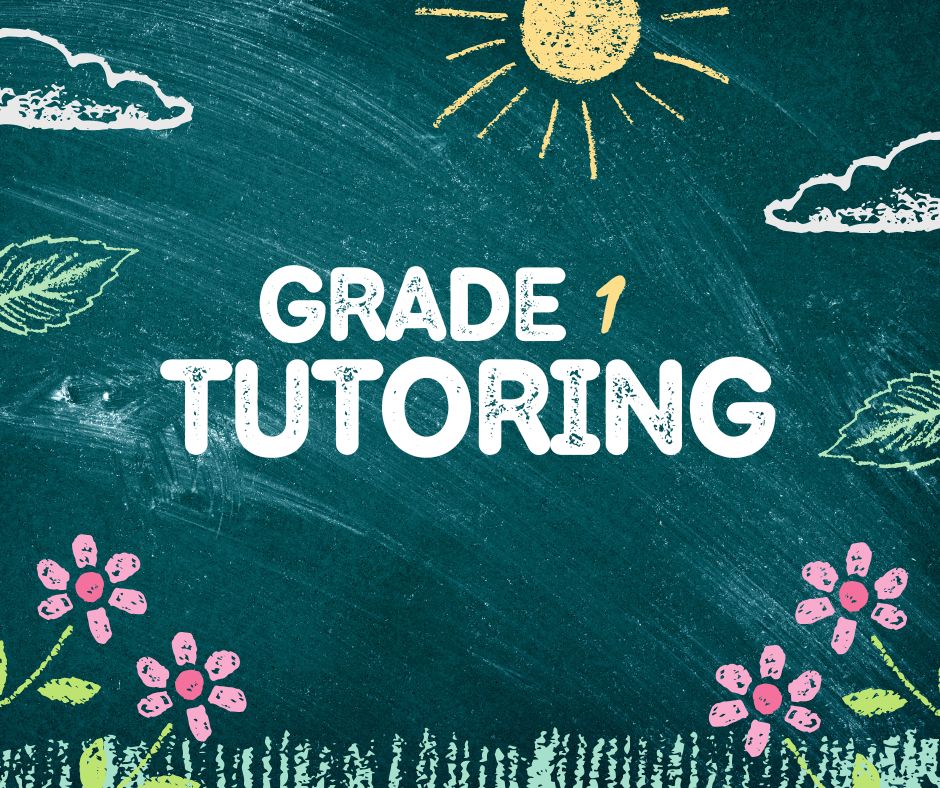
The Importance of Building Strong Foundations Early
Grade 1 is often the first year when children move from playful counting to more structured math concepts. While kindergarten focuses on number recognition and simple patterns, Grade 1 introduces addition, subtraction, place value, and the idea of solving problems step by step. For many children, this is exciting. But for others, it can quickly become overwhelming.
When a child struggles in Grade 1 math, it doesn’t just affect grades—it can shape their confidence and their attitude toward learning for years to come. That’s why Grade 1 math tutoring can play such a powerful role. With the right support, students can build strong foundations, develop confidence, and avoid the long-term difficulties that often begin with gaps in the early years.
Why Grade 1 Math Tutoring Matters
Parents often ask, “Isn’t Grade 1 too early for tutoring?” The answer is no—Grade 1 is the perfect time to start. Here’s why:
- Early Struggles Grow Over Time: A child who doesn’t fully understand addition or place value now may continue to struggle with multiplication and fractions later.
- Confidence is Shaped Early: At this age, children are forming opinions about what they’re “good at” or “bad at.” If math feels too hard now, they may carry negative feelings for years.
- Personalized Support Is Rare in Classrooms: Even the best teachers can’t always give one-on-one attention to every child. Tutoring fills that gap.
- Parents Feel the Pressure Too: Homework time can become stressful, leading to frustration on both sides. A tutor helps reduce that tension at home.
In short, Grade 1 tutoring isn’t just about learning math—it’s about building confidence, creating positive learning habits, and ensuring your child enjoys math instead of fearing it.
Common Grade 1 Math Challenges

While every child is unique, some math challenges show up again and again in Grade 1. Understanding these helps parents recognize when it might be time to bring in extra support.
1. Counting to 100 and Beyond
Children may be able to recite numbers, but they sometimes skip, reverse, or confuse number order. Mastering counting is essential for all future math.
2. Addition and Subtraction within 20
The shift from “counting fingers” to solving problems mentally is a big leap. Many students struggle with memorizing math facts and need more practice than the classroom allows.
3. Place Value (Tens and Ones)
The idea that the number “14” means “ten plus four” can be difficult at first. Without a solid understanding of place value, children may struggle with larger numbers later.
4. Word Problems
Turning real-life situations into equations requires both reading and math skills. Many children freeze up when they see word problems because they don’t know where to start.
5. Math Anxiety
It’s common for children to develop math anxiety as early as Grade 1. This can look like refusing to do homework, saying “I’m bad at math,” or becoming frustrated quickly.
Tutoring provides the time and patient guidance that allows children to overcome these hurdles without feeling rushed or compared to others.
How Grade 1 Tutoring Helps Students Succeed

A Grade 1 math tutor offers more than just homework help. They provide a personalized learning plan that matches your child’s pace and learning style. Here are some key benefits:
1. Personalized Lessons
Tutors focus on the exact areas where your child struggles. For example, if place value is confusing, the tutor can use blocks, drawings, or games until it makes sense.
2. Making Math Fun
Tutoring often includes math games, puzzles, and real-life examples (like counting toys or snacks). This helps children see math as enjoyable, not stressful.
3. Building Confidence Step by Step
Tutors celebrate small successes, which builds confidence. When a child realizes they can solve problems, their attitude shifts from fear to pride.
4. Reducing Homework Stress
Parents often find homework time becomes smoother when a tutor is involved. Instead of nightly battles, children come prepared and more confident.
5. Long-Term Success
By mastering basics early, children are better prepared for multiplication, fractions, and problem-solving in later grades.
What Parents Can Do at Home

Tutoring is powerful, but parents can also support math learning in everyday life. Here are some practical tips:
- Play Math Games: Card games, board games, and dice all involve counting and adding.
- Use Real Objects: Practice addition and subtraction with snacks, toys, or coins.
- Short, Daily Practice: Ten minutes a day is more effective than an hour once a week.
- Connect Math to Daily Life: Count groceries, measure ingredients, or track time.
- Encourage, Don’t Pressure: Praise effort and persistence, not just correct answers.
This creates a positive environment where math is seen as useful and fun.
FAQs About Grade 1 Math Tutoring
Q: How do I know if my child needs a tutor in Grade 1?
A: If your child consistently struggles with homework, avoids math activities, or seems behind their classmates, tutoring can help.
Q: How often should a Grade 1 child see a tutor?
A: Many families choose 1–2 sessions per week. Short, consistent sessions are more effective than long, irregular ones.
Q: Will tutoring make my child dependent on extra help?
A: No—tutoring builds independence by giving children tools and confidence to solve problems on their own.
Q: Is online tutoring effective for Grade 1 students?
A: Yes, with interactive tools and patient tutors, online tutoring can be just as effective as in-person, and often more convenient.




